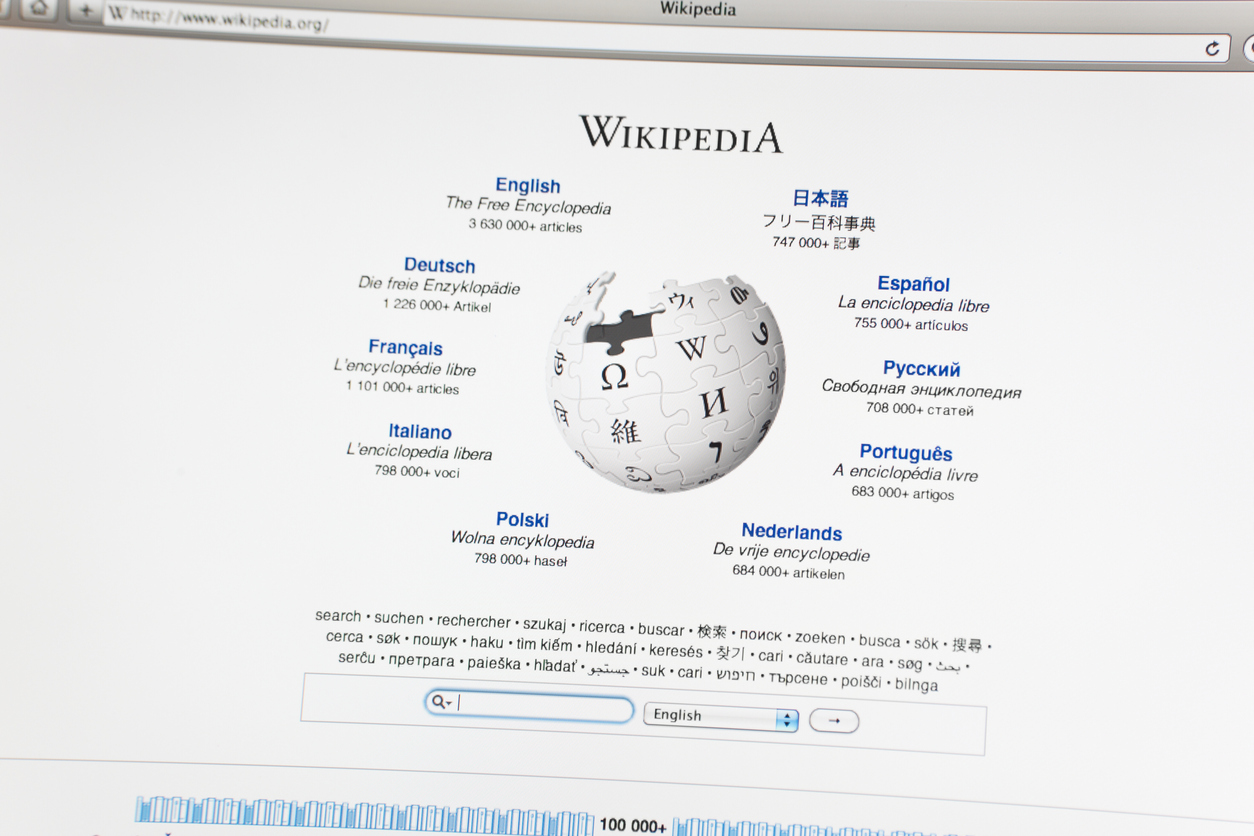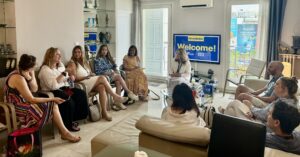Why Wikipedia can be a PR problem for political campaigns
Election season is Wikipedia season as voters pay close attention to candidate pages.

Rhiannon Ruff is a co-founder of the digital agency Lumino and the author of the new book, Wikipedia & Crisis Communications.
Political campaigns are kicking into high gear as primaries conclude and general elections take shape. All these candidates and their teams have robust digital operations that include paid and organic social media, targeted email outreach and sophisticated SEO.
The most important channel for many of these candidates, though, is arguably the one they don’t control — Wikipedia.
Voters turn to the online encyclopedia as a neutral source of information about candidates, ballot measures and other topics in the news. And even though it’s still early in the year, we’re already seeing a surge in traffic on candidate pages on Wikipedia that will crest just before the fall election as voters continue to gather information that will inform their ballot choice.
During the Iowa Republican caucus, for example, views of Nikki Haley’s page shot up to nearly 350,000 per day — well above the previous daily average of several thousand. And by the time the New Hampshire primary came, her entry was suddenly getting 450,000+ views a day. Haley finished second in that race and established herself as the only serious challenger to the GOP’s presumptive nominee, Donald Trump.
A wealth of academic studies have shown that Wikipedia pageviews are indeed related to electoral outcomes. A recent paper from Oxford Internet Institution researchers specified that while incumbents’ Wikipedia pages are more likely to receive higher traffic volumes during an election, pageviews for challengers are significantly more predictive of success — especially for candidates that voters perceive as “viable.”
Why voters turn to Wikipedia
Wikipedia is widely perceived as an impartial source of information about topics in the news.
A 2018 study by the Wikimedia Foundation, Wikipedia’s parent organization, found that information-seeking related to current events was the second-largest driver of traffic to the site, behind only intrinsic learning. Both of these factors apply to voters researching candidates, especially newer candidates whose backgrounds and views on key issues are unknown. Wikipedia articles are remarkably detailed, and readers would expect candidate pages to feature both biographical information and policy positions.
The Nikki Haley entry, for instance, features a robust rundown of her political career as governor of South Carolina and U.S. ambassador to the United Nations, along with a section titled Presidential campaign (2023–present) that includes a rundown of her stated political views (“Haley has proposed a TikTok ban, citing the app’s ties to the Chinese government.”) and efforts to distinguish herself from Donald Trump (“America needs a captain who will steady the ship, not capsize it.”)
Wikipedia articles like this also surface at the top of Google results. If a user searched for “political positions of Nikki Haley,” they would find a Wikipedia article with that exact title as the second result.
How political campaigns try to influence Wikipedia
Candidates are well aware of Wikipedia’s role as a source of information and, unsurprisingly, there have been many well-documented cases of campaign personnel trying to covertly edit their candidate’s page.
Perhaps most famously, a savvy operative in the John McCain camp polished Sarah Palin’s Wiki entry the day before the campaign announced that she would be the VP nominee, adding details like “she earned the nickname ‘Sarah Barracuda’ because of her intense play [in high school basketball]” that seemed likely to get picked up by the press.
This all may seem like old news, but the story never changes. Last May, shortly before announcing his candidacy for president, Vivek Ramaswamy paid an editor to remove information on his Wikipedia page that he thought might damage his candidacy.
With all of these cases, though, the “Streisand Effect” was fulfilled and the would-be stealth edits attracted additional public scrutiny and negative media coverage — in no small part because the campaigns clearly and blatantly violated Wikipedia’s conflict of interest rules.
Can campaigns succeed on Wikipedia?
Campaigns may think they have a “Wikipedia” problem, but their root issue is likely with media coverage.
Wikipedia doesn’t want the site’s community of volunteer editors adding information that comes from their own observations about a topic, no matter their degree of subject matter authority. Instead, the Wikipedia model is to outsource editorial judgment about what can be considered factual to reliable secondary sources like major media publications (The New York Times, The Wall Street, Politico, Bloomberg), peer-reviewed academic journals (Nature, Science, The New England Journal of Medicine) or books from major publishers (Springer, Wiley, Oxford University Press). These sources are then cited in the text so that readers can confirm that particular claims are accurate.
The trouble Ramaswamy ran into was the type of information he was trying to remove from Wikipedia and how he went about doing it. In particular, trying to excise certain roles he had held (like being a member of Ohio’s coronavirus task force) and honors he had received (the Paul & Daisy Soros Fellowship for New Americans), which were all well covered in the press and were thus mentioned on his Wikipedia article. When the editor Ramaswamy paid to scrub his page attempted to stealthily remove this information, other editors pushed back as the claims were all explicitly referenced in the cited sources. Not every factual claim from media coverage needs to be included in an entry, of course, but in this case, the removals seemed suspicious.
Ramaswamy’s paid Wikipedia editor might have had better luck if he had followed the site’s conflict-of-interest rules and gone to the article’s Talk page (where editors hash out decisions over article content), stated that he was a representative of the candidate, and then made a case that, for instance, the reference to Ramaswamy’s role on the COVID-19 task force seems undue given that he has served on numerous task forces and this is the only one mentioned in the article. That argument may not have worked, but it would have been transparently presented and wouldn’t have produced the same level of backlash (and negative headlines) as stealth editing.
There are limited examples of this approach working in the past, though operatives would need to be quite Wikipedia savvy to understand how to effectively present requests and engage editors.
Another option is to develop a Wikipedia-friendly media outreach strategy. If, for instance, a campaign wanted a particular detail about a candidate’s career (such as legislative accomplishments) to appear in their Wikipedia entry, then they should try to get reporters at major publications to include the item in their profiles on the candidate. Wikipedia’s volunteer editors would then (hopefully) recognize that the details in question are significant enough to warrant inclusion in the article.
In short, it’s understandable when campaign operatives would be concerned about their candidate’s Wikipedia entry, but attempting to directly edit the article in question is a high-risk endeavor that carries a significant risk of blowback both on and off Wikipedia.






